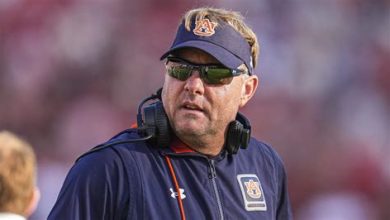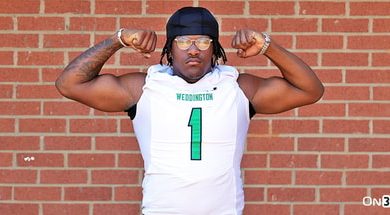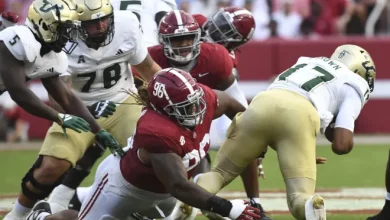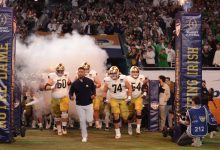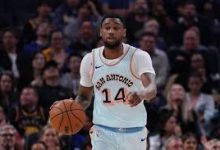The Buss family is set to sell a majority stake in the Los Angeles Lakers to Mark Walter, owner of the Dodgers, who is also CEO and chairman of TWG Global.
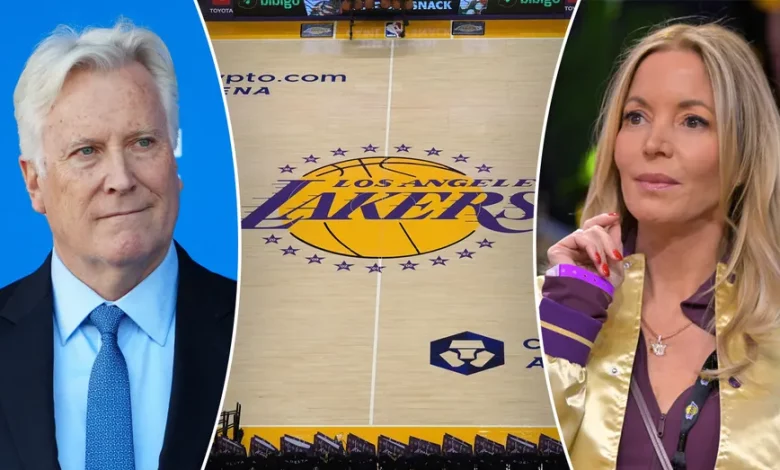
The Buss family is set to sell a majority stake in the Los Angeles Lakers to Mark Walter, owner of the Dodgers, who is also CEO and chairman of TWG Global.
The Los Angeles Lakers are one of the most storied and iconic franchises in the history of professional sports. With a legacy spanning over seven decades, a rich history of championships, legendary players, and a global fanbase, the Lakers have become more than just a basketball team—they’re a cultural institution. The ownership of such a franchise carries not only financial significance but also immense historical and emotional weight for fans, stakeholders, and the broader sports community.
As of recent reports, the Buss family, which has owned the Lakers for several decades, is preparing to sell a majority stake in the franchise to Mark Walter, a prominent businessman and sports owner. Walter’s acquisition of a significant portion of the Lakers marks a notable shift in the franchise’s ownership landscape, blending the Buss family’s legacy with Walter’s extensive experience in the business and sports worlds.
The Buss Family and the Lakers’ Heritage
The Buss family’s association with the Lakers dates back to 1979 when Dr. Jerry Buss purchased the team. Under his ownership, the Lakers experienced a golden era, winning multiple NBA championships, building a roster of legendary players like Magic Johnson, Kareem Abdul-Jabbar, Shaquille O’Neal, and Kobe Bryant. Dr. Buss’s leadership transformed the Lakers into a globally recognized brand, with a culture of excellence and showmanship that attracted fans worldwide.
Following Dr. Buss’s passing in 2013, ownership of the Lakers transitioned to his children, with Jeanie Buss taking on a prominent leadership role. Jeanie has been at the helm as the controlling owner, guiding the franchise through various successes and challenges, including navigating the complexities of modern NBA ownership, maintaining competitiveness, and managing the franchise’s brand.
The Buss family’s stewardship has been characterized by a deep commitment to the Lakers’ legacy, community involvement, and strategic growth. However, in recent years, there have been discussions and speculation about the possibility of selling part or all of the franchise, driven by various factors including the desire to fund new investments, diversify ownership, or adapt to evolving sports and entertainment landscapes.
Mark Walter: A Prominent Businessman and Sports Enthusiast
Mark Walter is a distinguished figure in the world of business and sports. As the owner of the Los Angeles Dodgers since 2012, he has overseen a period of significant success for the baseball franchise, including multiple division titles, playoff appearances, and a World Series championship in 2020. His leadership has been marked by strategic investments, innovative marketing, and a focus on community engagement.
Beyond his ownership of the Dodgers, Walter is the CEO and chairman of TWG Global, a diversified holding company with interests spanning finance, real estate, media, and other sectors. Under his leadership, TWG Global has grown substantially, leveraging strategic investments and acquisitions to expand its footprint across industries and geographies.
Walter’s approach to ownership and business emphasizes long-term value creation, innovation, and community involvement. His reputation as a responsible and forward-thinking owner has resonated well within the sports industry, making him an attractive candidate for acquiring a major franchise like the Lakers.
The Deal: A Strategic Acquisition
The reported agreement involves the Buss family selling a majority stake in the Lakers to Mark Walter. While the specific terms of the deal are yet to be publicly disclosed, it is believed to involve a significant transfer of ownership rights, positioning Walter as a key decision-maker and influencer in the franchise’s future.
This move signifies a new chapter for the Lakers, blending the franchise’s storied history with Walter’s strategic vision and business acumen. The acquisition is viewed as a way to ensure the franchise’s continued competitiveness, innovation, and global reach, leveraging Walter’s experience with the Dodgers and his broader business network.
The deal also reflects broader trends within the sports industry, where ownership groups are increasingly composed of wealthy entrepreneurs, investment firms, and media entities seeking to capitalize on the immense commercial potential of professional sports. As franchises become more globalized and revenue streams diversify—through media rights, merchandise, sponsorships, and digital platforms—the importance of strategic ownership becomes paramount.
Implications for the Lakers and the NBA
The transition of majority ownership to Mark Walter is expected to have several implications for the Lakers and the NBA as a whole:
- Stability and Continuity: The Buss family’s legacy is deeply embedded in the Lakers’ culture. While the sale marks a significant change, Jeanie Buss will likely continue to play an influential role, ensuring continuity in team management, branding, and community relations.
- Investment in Competitiveness: With Walter’s financial resources and strategic approach, the Lakers may see increased investment in player development, scouting, and infrastructure, strengthening their competitive edge in the NBA.
- Global Branding and Media: Walter’s experience with the Dodgers and other ventures positions the Lakers to expand their global footprint, utilizing digital media, international outreach, and innovative marketing to grow their fanbase.
- Potential for New Ownership Structures: The deal could pave the way for more diverse ownership models, including joint ventures or partnerships, reflecting modern trends in sports franchise ownership.
- NBA Dynamics: As one of the most valuable franchises, the Lakers’ ownership change could influence league negotiations, media rights deals, and franchise valuations across the NBA.
Broader Context: The Changing Landscape of Sports Ownership
The sale of a major franchise like the Lakers fits into a larger narrative within professional sports. Over the past few decades, sports ownership has evolved from local, family-run operations to global investment opportunities. High-net-worth individuals, private equity firms, and media conglomerates are increasingly involved in ownership groups, driven by the lucrative nature of media rights, merchandise, ticket sales, and sponsorships.
In this environment, the Lakers’ sale to Mark Walter is emblematic of the trend toward professionalized, strategic ownership that emphasizes long-term growth and global branding. Walter’s background with the Dodgers and TWG Global underscores his capacity to navigate the complex landscape of modern sports business.
The Future of the Lakers Under New Ownership
While the specifics of the deal remain confidential, the future of the Lakers under Mark Walter’s ownership looks promising. His track record suggests a focus on sustainability, innovation, and community engagement. Fans can anticipate potential investments in team facilities, technology, and player development programs to ensure the franchise remains competitive and relevant.
Moreover, Walter’s global outlook could lead to expanded international outreach, new media initiatives, and partnerships that elevate the Lakers’ brand worldwide. This aligns with the NBA’s broader strategy of increasing global engagement, especially in emerging markets in Asia, Africa, and Europe.
The Buss family’s decision to sell a majority stake in the Los Angeles Lakers to Mark Walter represents a significant milestone in the franchise’s storied history. It reflects the ongoing evolution of sports ownership, where legacy and innovation converge to shape the future. Walter’s experience as a successful owner of the Dodgers and his leadership at TWG Global position him well to guide the Lakers into the next chapter.
This transition underscores the importance of strategic, long-term planning in maintaining the franchise’s legacy, competitiveness, and global appeal. For fans, stakeholders, and the broader sports community, it heralds an exciting era of possibilities, driven by innovative ownership and a shared commitment to excellence.



